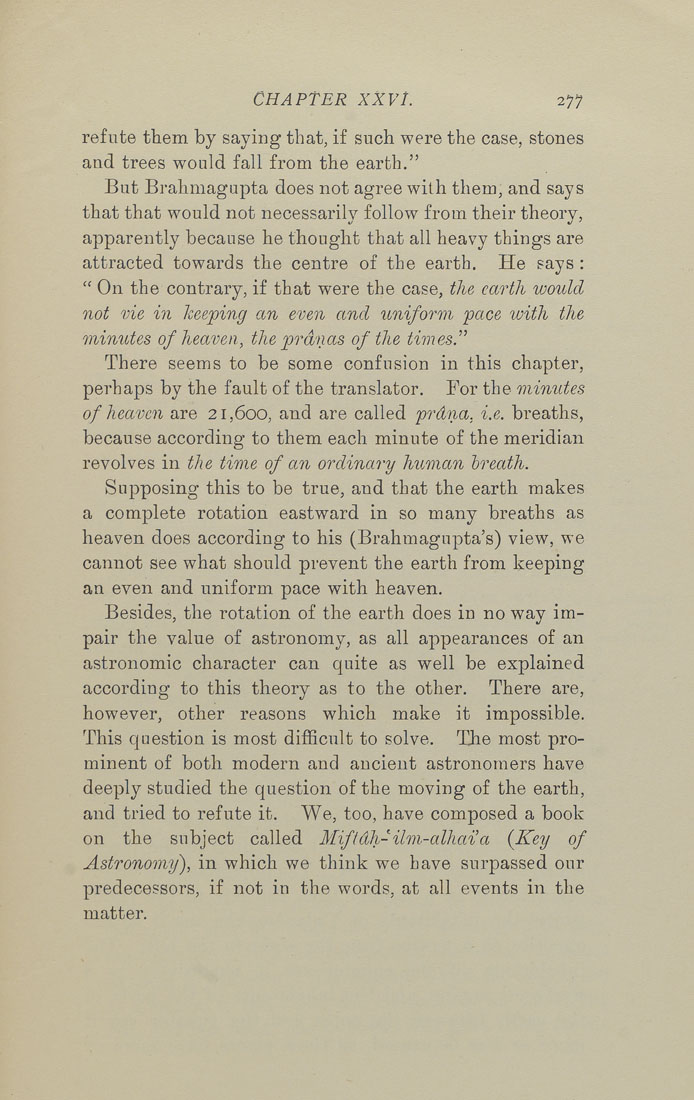Bīrūnī, Muḥammad ibn Aḥmad, Alberuni's India (v. 1)
(London : Kegan Paul, Trench, Trübner & Co., 1910.)
|
||
|
|
|
|
| Page 277 |

CHAPTER XXVI. 277 refute them by saying that, if such were the case, stones and trees would fall from the earth." But Brahmagupta does not agree with them, and says that that would not necessarily follow from their theory, apparently because he thought that all heavy things are attracted towards the centre of the earth. He says : " On the contrary, if that were the case, the earth would not vie in keeping an even and uniform pace ivith the minutes of heaven, the prdnas of the times." There seems to be some confusion in this chapter, perhaps by the fault of the translator. For the minutes of heaven are 21,600, and are called prdna, i.e. breaths, because according to them each minute of the meridian revolves in the time of an ordinary human breath. Supposing this to be true, and that the earth makes a complete rotation eastward in so many breaths as heaven does according to his (Brahmagupta's) view, we cannot see what should prevent the earth from keeping an even and uniform pace with heaven. Besides, the rotation of the earth does in no way im¬ pair the value of astronomy, as all appearances of an astronomic character can quite as well be explained according to this theory as to the other. There are, however, other reasons which make it impossible. This question is most difficult to solve. TJie most pro¬ minent of both modern and ancient astronomers have deeply studied the question of the moving of the earth, and tried to refute it. We, too, have composed a book on the subject called Miftdh-ilm-alhai'a (Key of Astronomy), in which we think we have surpassed our predecessors, if not in the words, at all events in the matter. |
| Page 277 |







